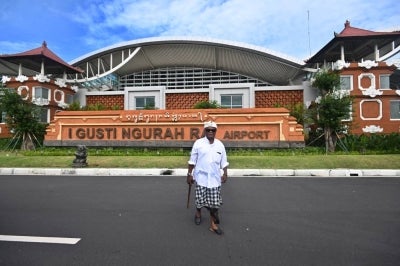Sabah grappling with overflow low-skilled workers issue
In the second quarter of 2023, Sabah recorded an average monthly wage of around RM1,800.


SHAH ALAM - The employment sector, which is dominated by 92.1 per cent of low-skilled workers, is identified as one of the factors contributing to Sabah's lower median monthly wage for local workers compared to other states in Malaysia.
In the second quarter of 2023, Sabah recorded an average monthly wage of around RM1,800.
Sabah Finance Minister Datuk Seri Masidi Manjun said changes in the economic structure due to technological advancements and the Industrial Revolution have affected the labor market structure, especially in terms of the composition of jobs in the state.
"At present, skilled labor is highly demanded and increasing compared to low-skilled labor.
“This results in the received wage rates depending on the skill level, where skilled workers are paid higher than low-skilled workers," he said.
However, Masidi emphasised that Sabah still faces issues with a shortage of skilled workers in certain fields, particularly in professional jobs with increasing demand and offering high wage rates.
"Based on data from the Statistics Department (DOSM), the main employment sector in Sabah is dominated by non-highly skilled workers.
“Out of the 1.875 million working population in Sabah in 2022, the majority are workers in the service and sales sector, accounting for 25.8 per cent, followed by basic workers at 25 per cent and workers in agriculture, forestry, animal husbandry and fishing at 9 per cent.
"Meanwhile, the population of workers in the professional and skilled sector is only 7.9 per cent, Sabah is also facing issues of job mismatch or skill mismatch, stemming from the number of graduates exceeding the demand for labour," he said.
Masidi added that the creation of limited job opportunities, including downstream industries with high demand and high wages, contributes to the increase in the number of graduates working in fields that do not match their qualifications with low wages.
"The increased involvement of productive groups in non-standard employment sectors with low wages, such as gig jobs, on-call services, and e-calls, is also one of the contributing factors to the low wage levels in Sabah.
"This sector offers more job opportunities, especially for unskilled workers. However, this sector often faces issues of salary payment and wages that do not match the workload," he said.
Masidi highlighted that monthly wages below the national median wage level in some states would affect the well-being of the people and have an impact on the economy of those states.
As a result, he said the state government is actively implementing various initiatives to attract domestic and foreign investments to Sabah to create more high-income job opportunities.
"The state government is working to accelerate the development of basic and digital infrastructure facilities, which not only create new job opportunities but also reduce costs, improve transportation service efficiency, internet access, and expand the economic market globally.
"In the meantime, they continue to strengthen the field of entrepreneurship by cultivating digital economic innovation through programs such as the Sabah Talent Entrepreneurship Program and entrepreneurship training," he said.
Download Sinar Daily application.Click Here!














